
Catch up: Here’s the latest on the war in Ukraine

Seven evacuation corridors are expected to open in Ukraine on Saturday
From CNN’s Niamh Kennedy in London
Seven evacuation corridors along key routes are expected to open in Ukraine on Saturday, according to Ukrainian Deputy Prime Minister Iryna Vereshchuk.
Announcing the corridors in a Facebook post Saturday, Vereshchuk said the list includes the route from the besieged southern city of Mariupol to the government-held city of Zaporizhzhia in southeastern Ukraine.
Private transport will travel along the evacuation route, stopping in Mangush, Berdiansk, Tokmak, Vasylivka and Kamyanske, before reaching the final destination of Zaporizhzhia.
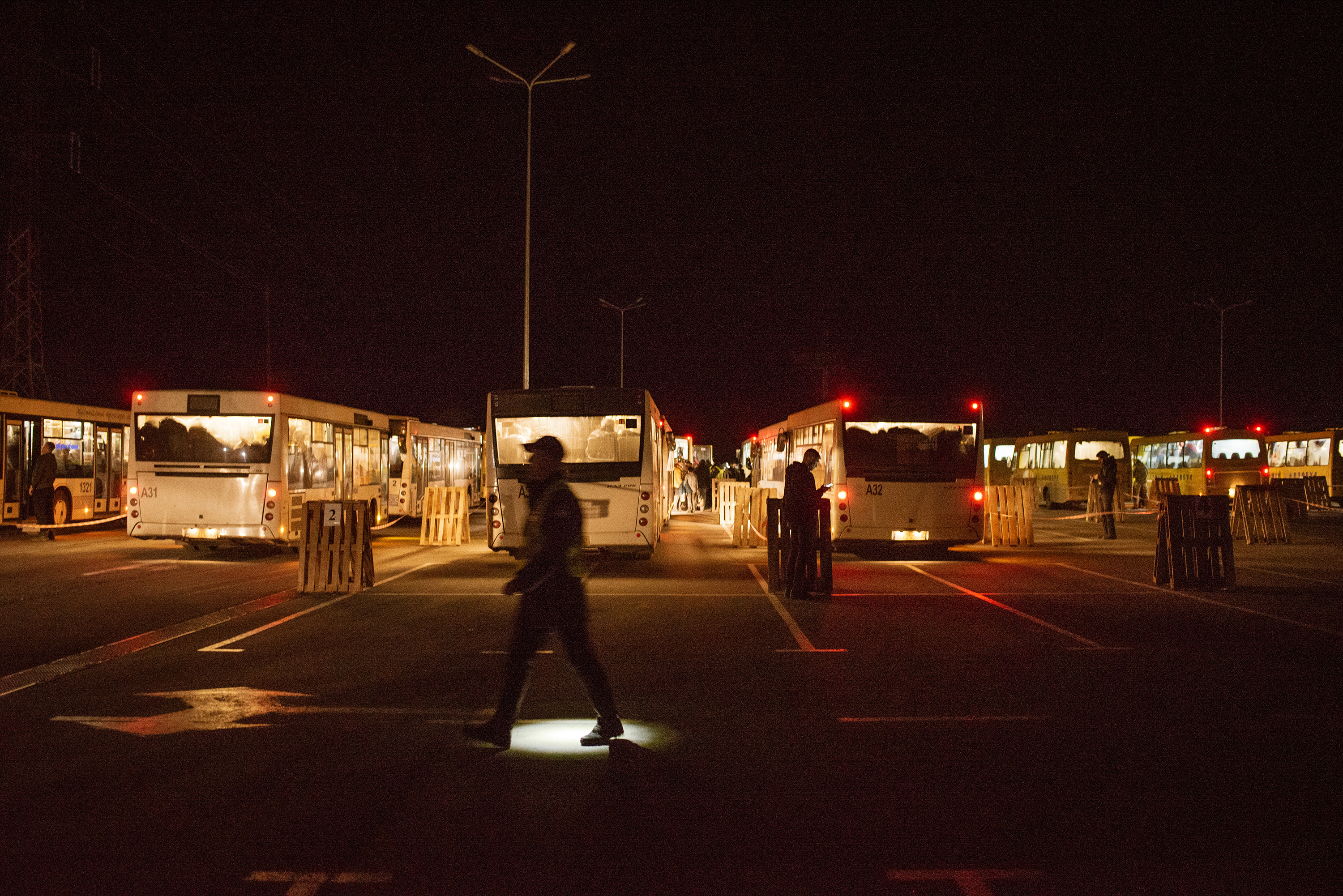
Vereshchuk announced in a video message on Friday evening that a convoy of 42 buses traveling from the southern city of Berdiansk — carrying residents from the besieged city of Mariupol — had managed to pass a key Russian checkpoint, and was en route to Zaporizhzhia. That convoy arrived in Zaporizhzhia later that night.
Vereshchuk hailed the arrival as a success, after the Ukrainian government’s efforts to try and “open the corridors from Mariupol to Zaporizhzhia” since March 5.
A total of 6,266 people were evacuated from Ukrainian cities on Friday, including 1,431 people who moved from the southern cities of Berdiansk and Melitopol in their own vehicles to Zaporizhzhia through evacuation corridors, according to Vereshcuk. She added that of that number, 771 people originally came Mariupol.

A route for buses and private vehicles from Berdiansk to Zaporizhzia is also expected to operate on Saturday, with stops planned in Tokmak, Vasylivka and Kamyanske.
Evacuation routes will also open from the city of Rubizhne in the separatist controlled region of Luhansk to Bakhmut in the eastern region of Donetsk, also controlled by Russian-backed separatists.
The remaining routes will operate from Nizhny to Bakhmut, Severodonetsk to Bakhmut, Popasna to Bakhmut and Lysychansk to Bakhmut.
CNN’s Nathan Hodge and Julia Presniakova contributed reporting to this post
Russia attacked a major oil refinery in Ukraine, its military says
From CNN’s Radina Gigova, Nathan Hodge and Jake Kwon
Russian forces targeted a major Ukrainian oil refinery in a series of strikes Saturday morning, according to a spokesman for the country’s military.
The refinery, in the central Ukrainian city of Kremenchuk, was hit by “high-precision long-range air and sea-based weapons,” Russian Defense Ministry spokesman Maj. Gen. Igor Konashenkov said in a briefing on Saturday.
Konashenkov said Russia’s military had destroyed storage facilities holding gasoline and diesel fuels that were supplying Ukrainian troops in the country’s eastern and central regions.
Russia also struck military airfields in Poltava and Dnipro, cities to the east of Kremenchuk, using high-precision air-based missiles, Konashenkov said.
What Ukraine is saying: Dmytro Lunin, the governor of the Ukranian region of Poltava where the refinery is located, said three Russian planes carried out the strike at about 6 a.m. local time. Lunin said it is unknown whether anyone was hurt in the attack, but that emergency services were putting out a fire on Saturday morning.
Lunin also said that four Russian missiles hit other targets in Poltava at around 2 a.m.
Ukraine’s largest oil company Ukrnafta operates an oil refinery in Kremenchuk, according to the company.
Some context: The attack on the oil refinery comes a day after the Kremlin accused Kyiv of mounting a helicopter attack on a civilian fuel depot inside Russian territory. Footage of the facility engulfed in flames has surfaced on social media.
The Ukrainian Ministry of Defense has neither confirmed nor denied the attack, and President Volodymyr Zelensky declined to discuss the assault when asked about it during an interview with Fox News.
CNN is so far unable to verify this claim and the Ukrainian Defense Ministry told CNN it has no information about the incident.
Russia has targeted fuel storage facilities around Ukraine in recent days.
British high-precision weapons in Ukraine would be “legitimate targets” for Russian forces, says Russian ambassador to the UK
From CNN’s Radina Gigova in Atlanta
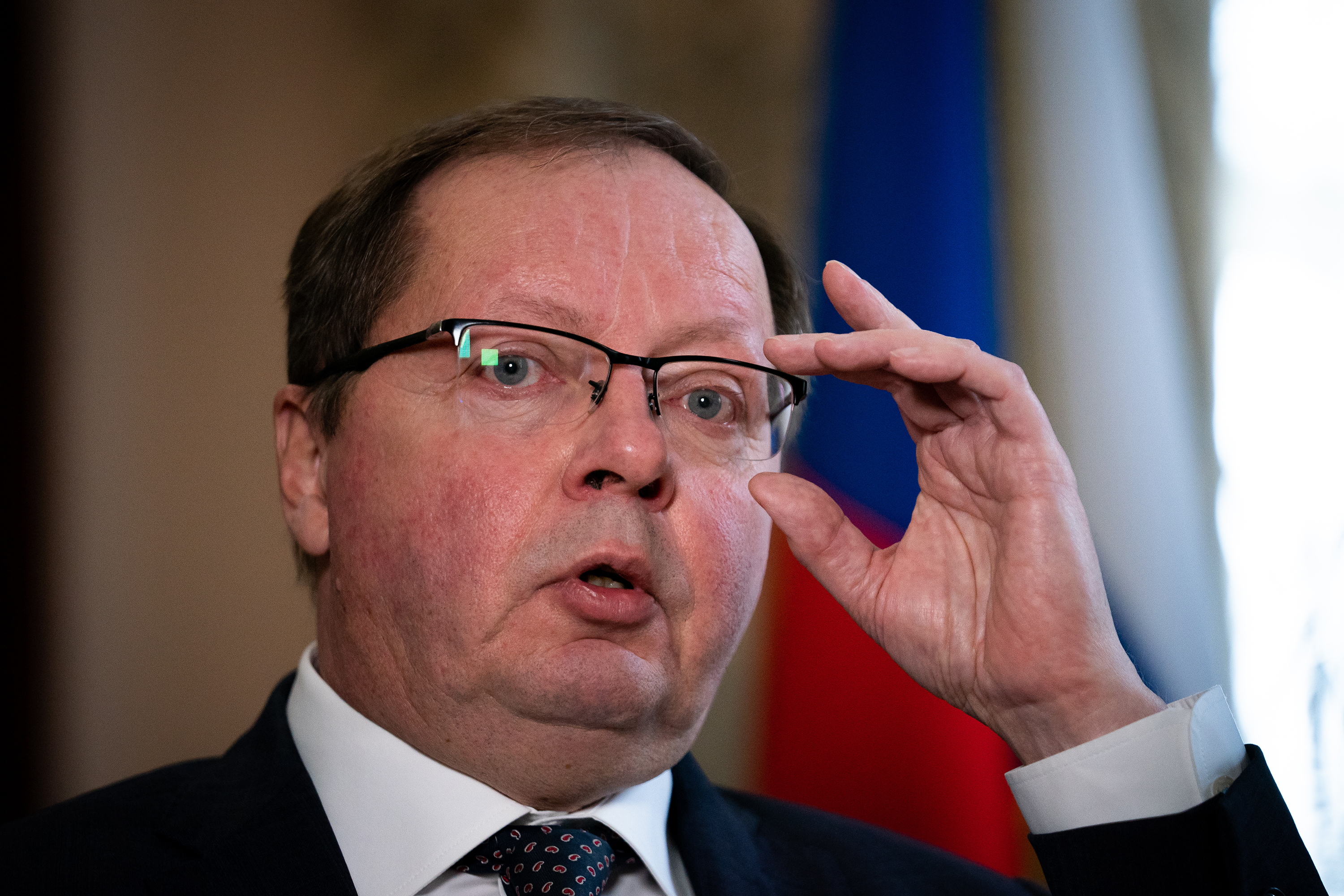
If Britain delivers long-range artillery weapons and anti-ship systems to Ukraine, they would be “legitimate targets” for Russian forces, Russian ambassador to the United Kingdom Andrei Kelin told Russian state news agency TASS in an interview published on Saturday.
“Any weapon deliveries are destabilizing, especially the ones mentioned by (Ben) Wallace (the British Defense Secretary),” said Kelin, according to TASS. “They exacerbate the situation and make it bloodier.”
“Apparently, these are new, rather high-precision weapons. Of course, they will be legitimate targets for our armed forces if they cross the border of Ukraine.”
“I have a feeling that London’s idea of what is happening in Ukraine militarily is formed on the basis of the bravado reports of the Ukrainian Ministry of Defense and the Ukrainian leadership,” Kelin said.
Some background: Russian officials have long complained about deliveries of advanced military weaponry to Ukraine by the US and the UK. Some of those weapons, particularly anti-tank weapons, have enabled Ukrainian troops to blunt Russian advances.
The UK ratcheted up military support to Ukraine ahead of Russia’s invasion on February 24. Following an international donor conference for Ukraine, British Defense Secretary Ben Wallace announced on Thursday that Britain and its allies will send “more lethal aid” to Kyiv.
“There’ll be more lethal aid going into Ukraine as a result of today. A number of countries have come forward either with new ideas or pledges for more money,” Wallace said, noting that the United States is “being at the forefront” of the aid effort.
Viktor Orban, the EU leader who can’t quit Putin, faces a united front in Hungary’s election
From CNN’s Rob Picheta in London
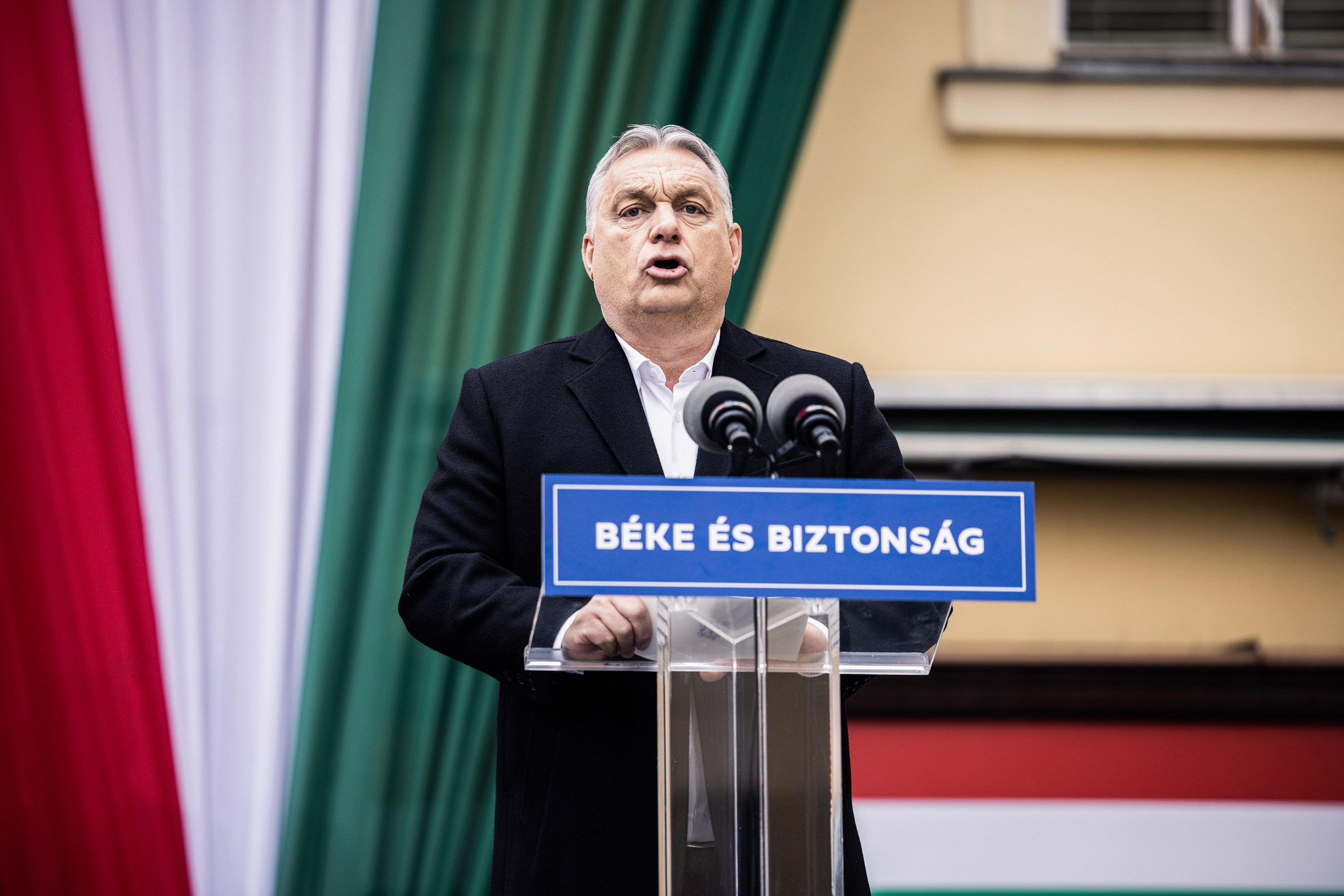
Six weeks ago, Hungary’s election campaign looked and sounded very different.
The stakes were already high. Viktor Orban, the longest-serving national leader in the European Union, was seeking to extend his authoritarian premiership deep into its second decade. His rival, leading a united front of opposition parties, bluntly denounced Orban’s crusade against independent institutions and the rule of law.
But the political focus was resolutely domestic. When foreign policy took center stage, it was usually raised by Orban to tout his international credentials — such as on February 1, when he boasted of his political longevity while in Moscow, a few feet from his staunch ally President Vladimir Putin.
Now, everything has changed. Putin’s invasion of Ukraine later that same month has upended the race, recasting its protagonists and rewriting their pitches. It has left Orban, widely regarded as the EU’s most pro-Kremlin leader, walking a political tightrope. And it has shone a spotlight on a years-long entanglement between him and the Russian President, two strongmen whose political journeys bear some notable similarities.
“If you want to analyze the election campaign, you have to draw a line on February 24,” said Andrea Virág, director of strategy at the Republikon Institute think tank in Budapest, Hungary’s capital. “Since the war started, it’s completely different.”
Read more:
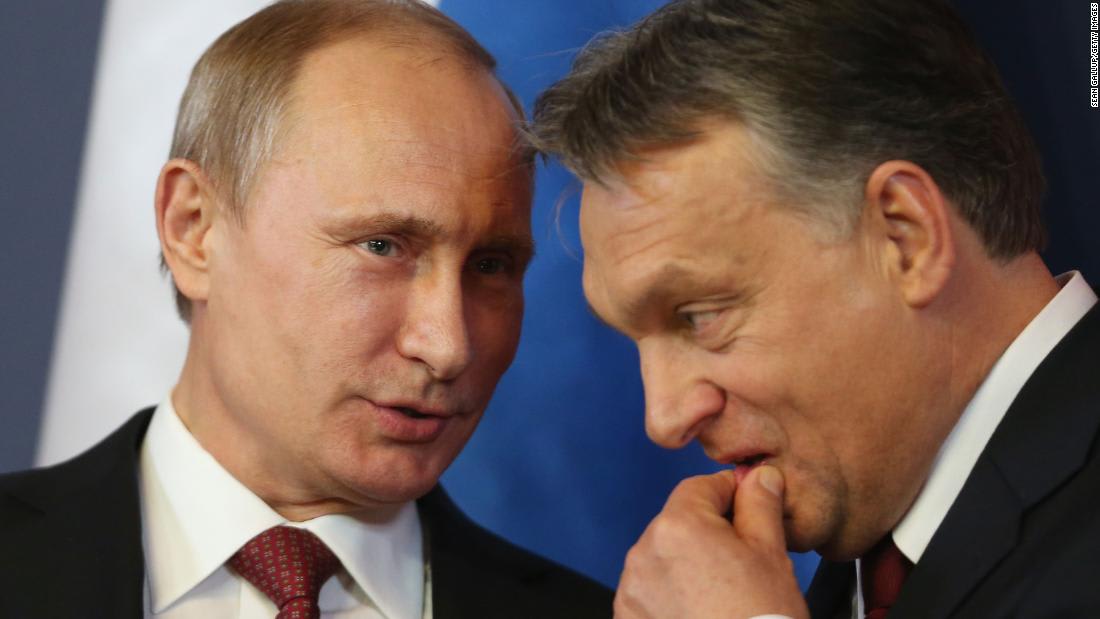
Some historians say Putin is making the same mistakes that doomed Hitler
From CNN’s John Blake
Russian President Vladimir Putin often evokes the Soviet Union’s epic defeat of Nazi Germany during World War II to justify his country’s invasion of Ukraine.
Yet Putin is committing some of the same blunders that doomed Germany’s 1941 invasion of the USSR — while using “Hitler-like tricks and tactics” to justify his brutality, military historians and scholars say.
This is the savage irony behind Putin’s decision to invade Ukraine that’s become clear as the war enters its second month: the Russian leader, who portrays himself as a student of history, is floundering because he hasn’t paid enough attention to the lessons of the “Great Patriotic War” he reveres.
“I have been trying to make sense of this for a month, because as terrible as Putin is, you could never say he was illogical,” says Peter T. DeSimone, an associate professor of Russian and Eastern European history at Utica University in New York.
“All of this is illogical, and that’s the scary thing,” he says. “This is not normal for what he’s done in the past. This is something that makes no sense on many levels, and not just in regard to World War II.”
Read more:
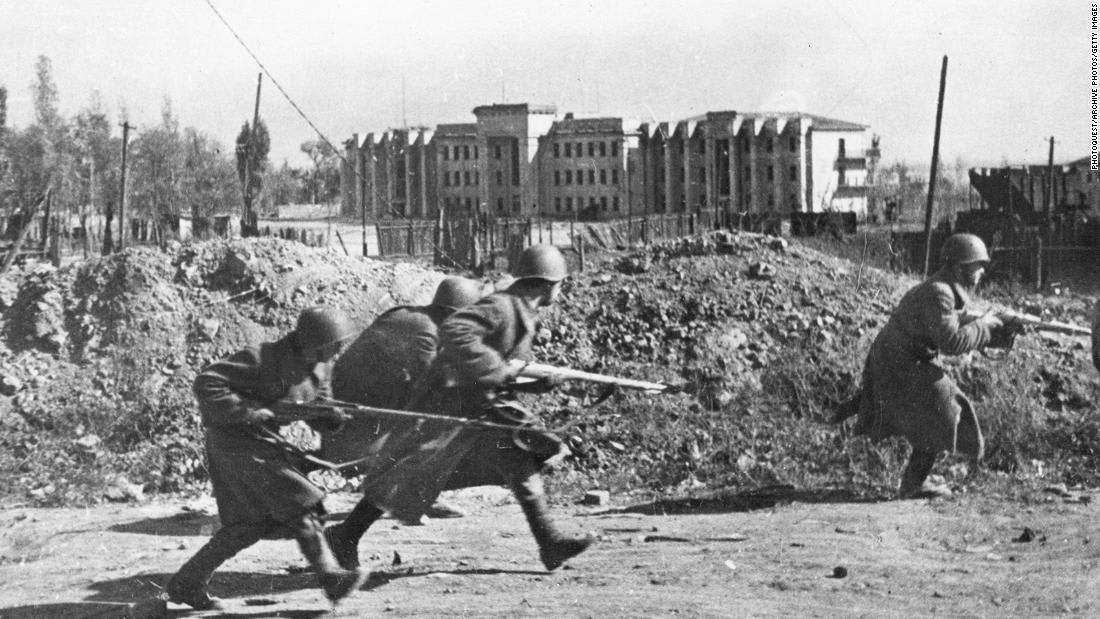
These people are cold calling Russians to tell them about the war
From CNN’s Teele Rebane

Marija Stonyte picks up her phone and anxiously dials in a number. After a couple of rings, a woman picks up.
“I’m calling to tell you a very important message. I don’t know if you know a lot about what is actually happening right now in Ukraine,” Stonyte says in the call last month, her voice trembling as her 1-year-old daughter babbles in the background.
There’s silence on the other end of the line.
“The real truth is that it is a terrible invasion.”
This is one of dozens of cold calls that Stonyte and her husband make every day to people in Russia from their home in Lithuania as part of a volunteer initiative aimed at penetrating Russia’s so-called digital iron curtain.
Russia’s ongoing onslaught in Ukraine has seen cities bombarded, civilians killed, and more than 4 million flee the country. But at home, many Russians know little about what is unfolding.
Digital iron curtain: Russia has banned state media from calling Russian President Vladimir Putin’s “special military operation” an “invasion” or a “war,” and those who criticize the offensive can face severe punishment.
A Moscow court banned Facebook and Instagram for carrying out “extremist activity,” and a new censorship law made publishing “fake” information about the invasion punishable by up to 15 years in prison. The pressure has forced independent news outlets to pull out or shut down, leaving a void for state media to fill with propaganda and disinformation.
Desperate to break through, people around the world are trying creative ways to connect with Russians. Online activists Anonymous claim to have hacked Russian TV channels to broadcast footage from Ukraine.
Others, like Stonyte, are trying a more individual approach. They’re cold calling or messaging strangers in Russia, hoping their personal pleas will disrupt the Kremlin’s propaganda — and potentially even help put an end to the deadly war.
Read the full story and listen to the calls:
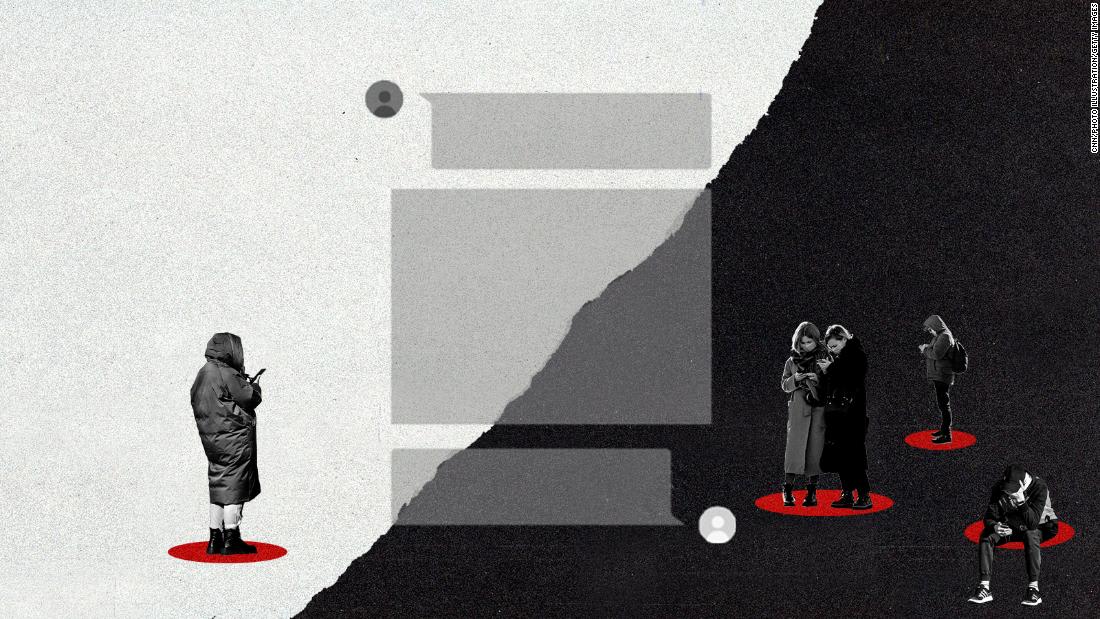
It’s 7 a.m. in Kyiv. Here’s the latest on the war in Ukraine
Further evacuations from besieged Ukrainian cities are scheduled for Saturday, after thousands of people escaped to safety on Friday, according to officials. Meanwhile, Ukraine’s President says Russian troops are “slowly but noticeably” moving out of the north of the country.
Here’s what you need to know:
- Evacuations ongoing: More than 6,000 people were evacuated from Ukrainian cities on Friday, according to Ukrainian officials, including more than 2,000 from Mariupol. More than 100,000 people remain trapped in the besieged southern city, where local leaders say Russia is not allowing aid in. Evacuations from Mariupol would continue Saturday, a Ukrainian minister said.
- Zelensky on Russian movements: In a video address, Ukrainian President Volodymr Zelensky said Russian troops are “slowly but noticeably” moving out of the north of the country but urged Ukrainians to remain cautious as troops withdraw. Zelensky said preparations are underway for more Russian strikes in eastern Ukraine.
- Attacks on eastern Ukraine: Ukrainian officials reported heavy shelling in eastern Ukraine Friday, particularly in the Luhansk region of the Donbas amid an apparent shift by Russia to redirect military efforts to the region. NATO’s chief has warned Russian forces are repositioning rather than withdrawing, while Ukrainian and US officials say Russians may be regrouping in Belarus.
- Ukraine reclaims key airport … : Satellite images show Russian forces have withdrawn from the Antonov Airport in Hostomel, 18 miles northwest of Kyiv. The images confirm earlier information from a US official, who told CNN they believed the Russian military had likely left the airport, which was captured on the first day of the war.
- … and more territory near Kyiv: Video posted to social media shows bodies laying in the street where they fell in Bucha, a city on the northwestern outskirts of the capital. It’s unclear from the video whether the bodies are civilians or the military. It comes after the Bucha mayor said Ukraine had recaptured the city.
- Extra US aid: The United States will provide another $300 million in security assistance to Ukraine, the Pentagon said Friday. The new package includes drones, anti-drone systems, armored vehicles, night-vision equipment and ammunition — but not some of Ukraine’s biggest requests, such as aircraft.
- Top EU official visits Ukraine: European Parliament President Roberta Metsola traveled to Ukraine and met with Zelensky — the first leader of an EU institution to visit Ukraine since the Russian invasion began. Zelensky labeled her visit “heroic.”
- Fuel depot blaze: A huge fire broke out at a fuel depot in Belgorod, a Russian city near the Ukrainian border, and Russia says an air strike from Ukrainian helicopters is to blame. CNN is so far unable to verify this claim and the Ukrainian Defense Ministry told CNN it has no information about the incident.
Here’s the state of the conflict:
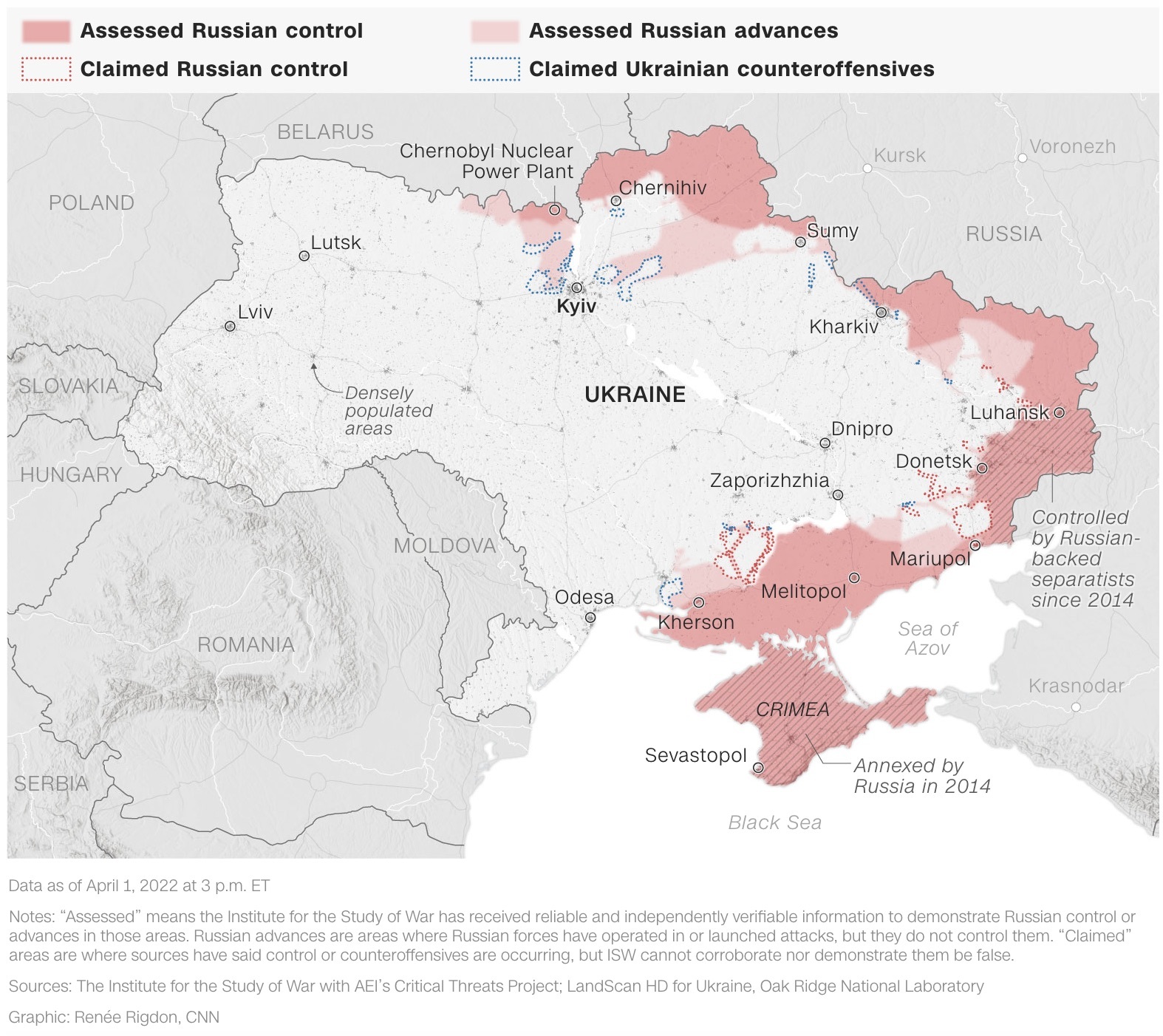
Zelensky: Sanctions against Russia are working but should be strengthened
From CNN’s Mitchell McCluskey
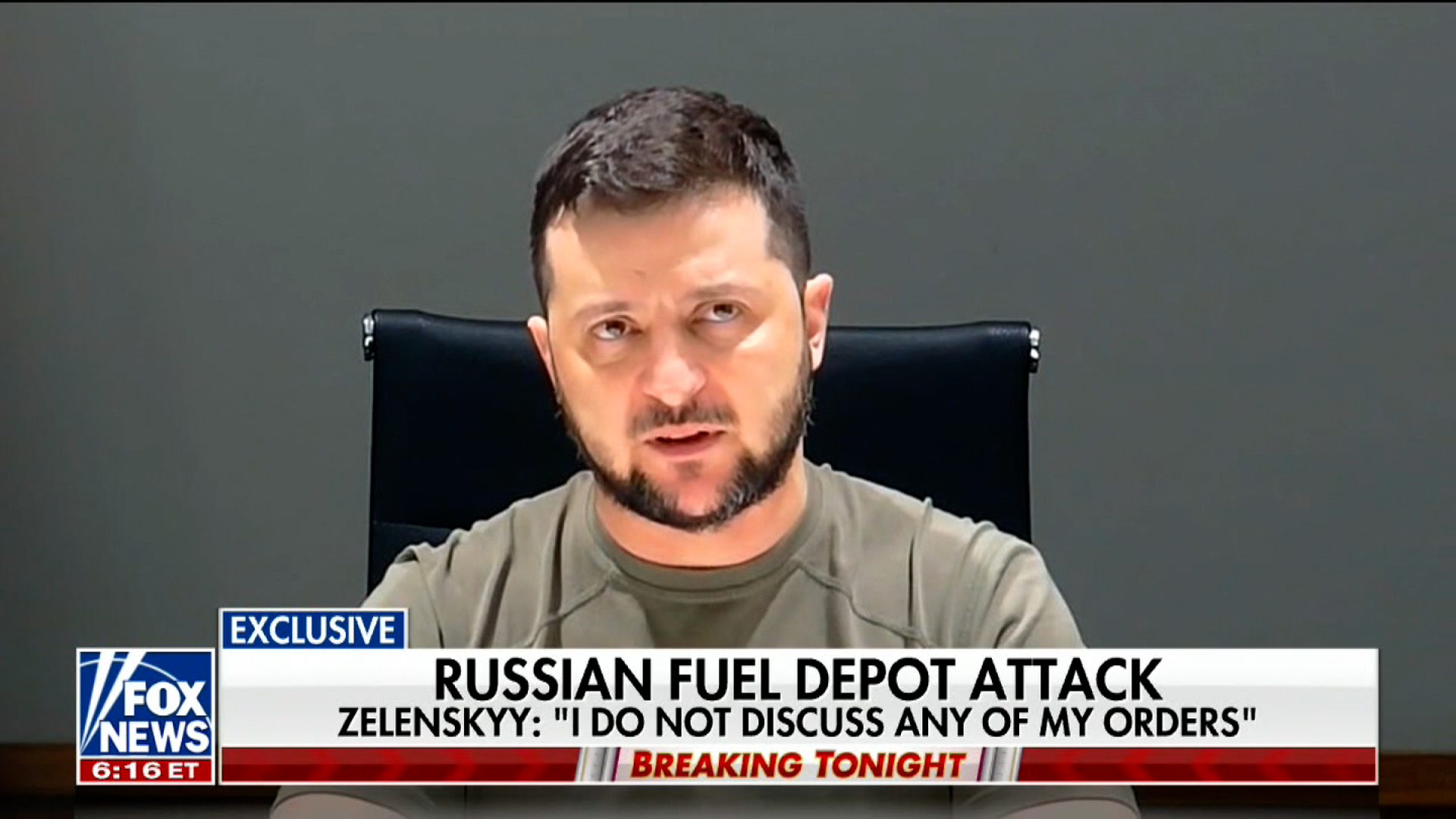
Sanctions against Russia are working but need to be strengthened, Ukrainian President Volodymyr Zelensky said in a taped interview with Fox News on Friday.
“Sanctions definitely work, and Russia is definitely afraid of sanctions. It puts them out of comfort. It drops down their economy. But there’s a question of how sanctions are working. We are showing and telling the United States and European leaders, everybody must work together quickly,” Zelensky said.
“They must have an impact on the oligarchs, on the President of Russia and on all the parties and on the country in general. The United States should continue working on this if the US would like to have successful negotiations.”
Alleged helicopter attack: During the interview, Zelensky responded to Russian accusations that Ukraine mounted a helicopter attack on a fuel depot inside Russian territory Friday.
“I’m sorry I do not discuss any of my orders as commander in chief, the leader of this state. There are things which I only share with military armed forces of Ukraine and when they talk with me,” Zelensky said, when asked if he had ordered such an attack.
“You need to understand that on that territory that you mentioned they were placing their shooting systems and were firing missiles themselves.”
Some context: A huge fire broke out Friday at a fuel depot in Belgorod, a Russian city near the Ukrainian border — which Russia said was caused by an air strike from Ukrainian helicopters. CNN is so far unable to verify this claim and the Ukrainian Defense Ministry told CNN it has no information about the incident.
No land-for-peace deal: Zelensky also said he would not be willing to trade Ukrainian territory in exchange for a peace deal with Russia.
“We do not trade our territory. So the question of territorial integrity and sovereignty is out of discussion,” Zelensky said.
US to provide $300 million more in security assistance to Ukraine. Here’s what it includes
From CNN’s Oren Liebermann and Barbara Starr
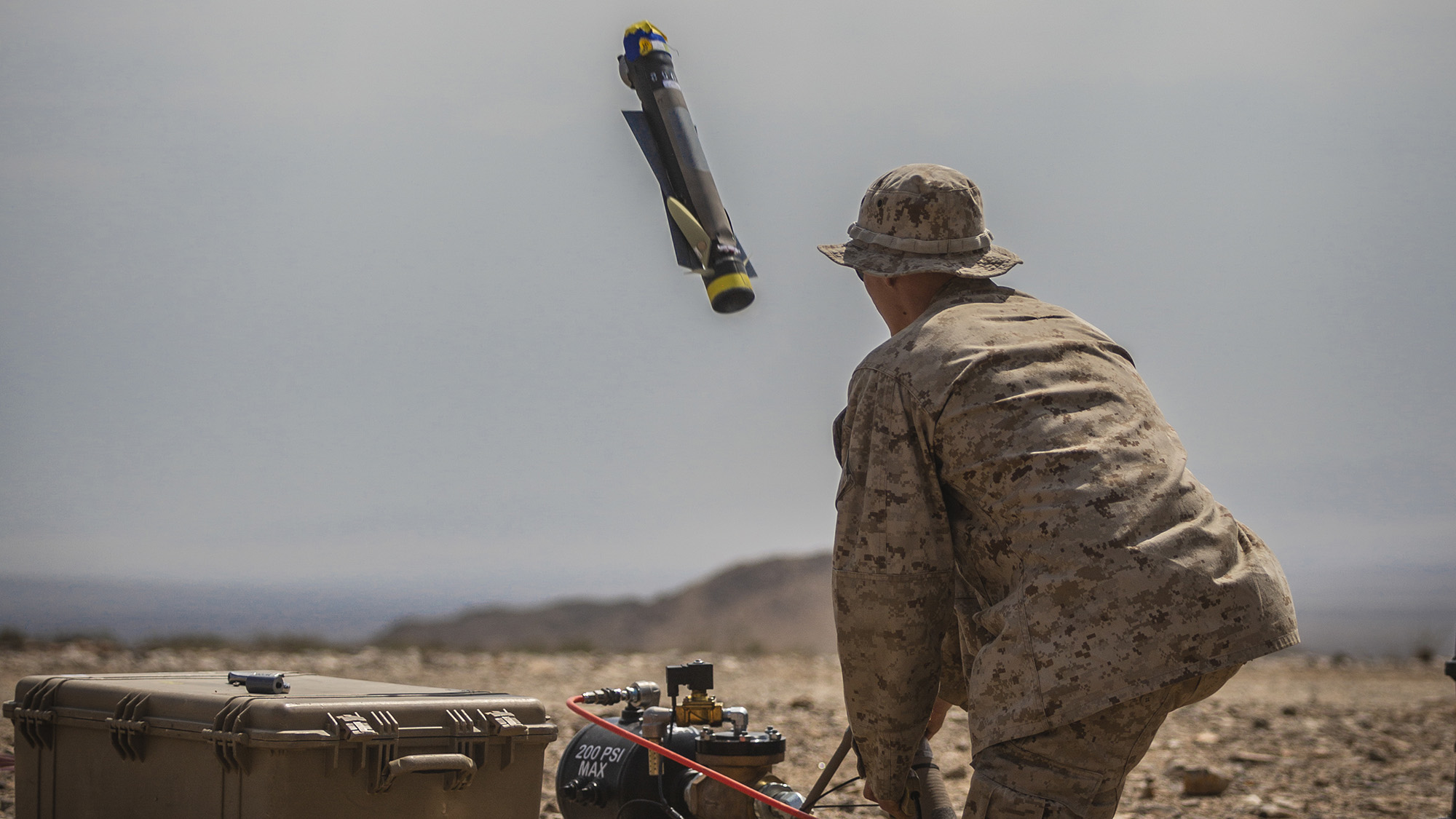
The United States will provide another $300 million in security assistance to Ukraine, the Pentagon announced Friday.
The new package means the US has now committed more than $2.3 billion in security assistance to Ukraine since the start of the Biden administration, according to the statement from Pentagon press secretary John Kirby.
The new package includes:
- Switchblade suicide drones
- Anti-drone systems
- Armored vehicles
- Night-vision equipment
- Ammunition
- And more
Not all requests fulfilled: Unlike presidential drawdowns, which pull from Defense Department stocks to provide to Ukraine, this package falls under the Ukraine Security Assistance Initiative (USAI), which means the weaponry and equipment will be procured from industry.
The new package comes as Ukraine has pushed for more advanced weaponry from the US and European nations. Much of the equipment provided to Ukraine fulfills those requests, but the US has not acquiesced to some of the biggest requests, such as aircraft.
The statement on security assistance is an unusual departure from past practice, in which the Pentagon and the administration have been discrete about the equipment provided. This time, the Pentagon laid out in some detail the systems and equipment that Ukraine will receive.
Source: https://www.cnn.com/europe/live-news/ukraine-russia-putin-news-04-2-22/index.html
















